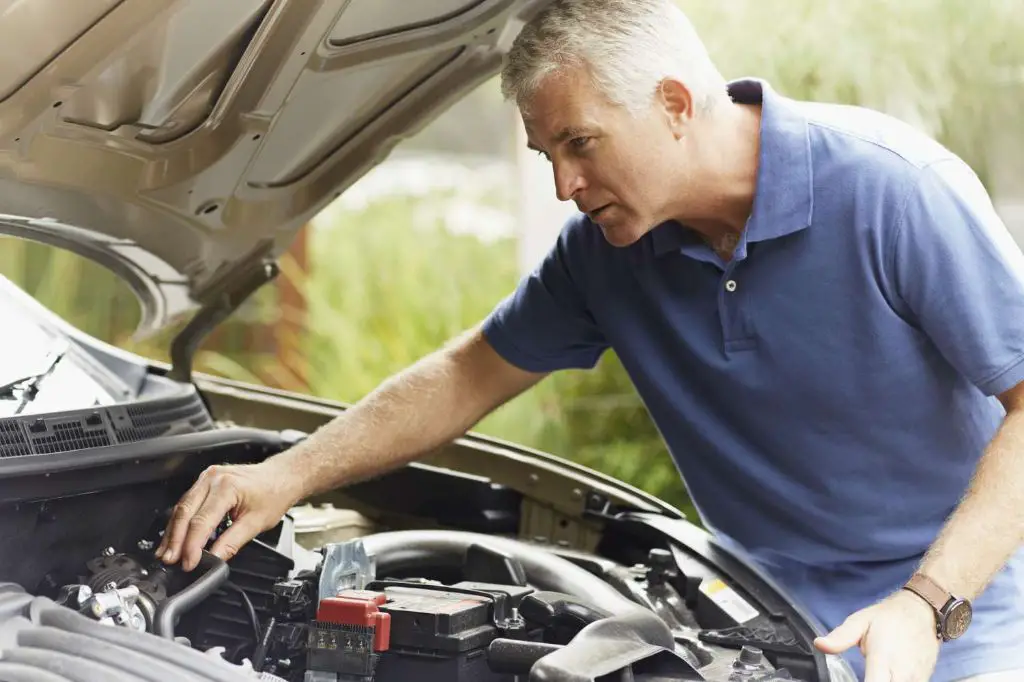If you notice your engine making an unusual whirring noise when accelerating or idling, it’s often a sign of a problem. Here are some common causes of engine whirring and what to do about them:
Page Contents
Bad Alternator
The alternator is responsible for generating electricity to power your car’s electrical systems while the engine is running. A failing alternator can make a whirring noise as the bearings start to wear out. This will eventually cause the alternator to stop charging the battery properly.
Signs of a bad alternator:
- Whirring noise that gets louder with higher RPMs
- Battery warning light comes on while driving
- Dimming headlights, especially at idle
- Dead battery after driving for a while
If you suspect a bad alternator, have it tested by a mechanic right away. Driving with a malfunctioning alternator can drain your battery and leave you stranded.
Serpentine Belt
The serpentine belt connects the alternator, power steering pump, water pump and AC compressor to the crankshaft. If this belt becomes worn or damaged, it can slip and make a whirring or squealing noise.
Signs of a bad serpentine belt:
- High-pitched squealing when accelerating
- Whirring noise that gets faster with higher RPMs
- Visible cracks or fraying on the belt
Have the serpentine belt inspected if you notice these symptoms. A loose or worn belt needs to be replaced or it could break entirely and leave you without power steering, charging and AC.
Bad Bearings
Bearings allow the crankshaft, pulleys and other engine components to spin smoothly. Over time, excessive wear can cause them to fail. Bad bearings will produce a whirring, grinding or knocking noise from the engine.
Signs of bad bearings:
- Metallic whirring or grinding noise
- Knocking or rattling during acceleration
- Reduced engine performance and power
- Excessive oil consumption or leaks
Have a mechanic diagnose any bearing noise right away. If the bearings fail completely it can lead to serious internal engine damage. Replacing worn bearings early is much less expensive than a full engine rebuild.
Electric Cooling Fans
Many modern vehicles have electric cooling fans that run after the engine is shut off to continue cooling the radiator. A bad fan motor can produce a whirring noise as the fan spins. This usually happens when the engine is idling or after it’s turned off.
Signs of faulty cooling fans:
- Loud whirring or clicking noise from engine bay
- Noise that continues after engine is off
- Engine overheating issues
Have the cooling fan motors tested if you notice abnormal fan noises. Repairing or replacing the fans can prevent overheating problems.
Power Steering Pump
The power steering pump circulates fluid to make it easier to turn the steering wheel. A failing pump can make noises including whining, squealing or whirring.
Signs of power steering problems:
- High-pitched whining when turning the wheel
- Intermittent whirring at idle
- Reduced power steering assist
- Leaking power steering fluid
Catching power steering issues early can save the cost of a full pump replacement. Have any unusual pump noises or steering problems inspected immediately.
Bad Fuel Pump
The electric fuel pump moves gasoline from the tank to the engine. A worn pump will produce a whining or whirring noise as the motor works harder to pump fuel.
Signs of a failing fuel pump:
- High-pitched whining from fuel tank area
- Engine stalling or misfiring
- Reduced power and acceleration
- Check engine light comes on
It’s important to address fuel pump issues promptly to avoid being stranded without gas. Listen for pump noises near the fuel tank and have it checked if you notice any.
Loose Pulleys
Pulleys attached to the crankshaft and serpentine belt can become loose over time. This allows them to wobble slightly and create a whirring noise.
Signs of a loose pulley:
- Intermittent whirring noise at idle
- Noise may change with engine speed
- Vibration felt through steering wheel
Have loose pulleys inspected and tightened by a mechanic. Allowing them to continue wobbling can damage the pulley bearings.
Conclusion
Hearing your engine whirr can be concerning, but it doesn’t necessarily mean a major issue. Many common problems like a loose belt or bad alternator can cause whirring noises and are inexpensive to fix. However, it’s wise to have any unusual engine noises checked by a professional technician to identify the cause and recommended repair.
Catching small problems early can often prevent expensive damage down the road. Listen closely for any new engine noises and bring your car in if you have any concerns. With prompt diagnosis, a whirring engine is usually an annoyance rather than a catastrophe.
